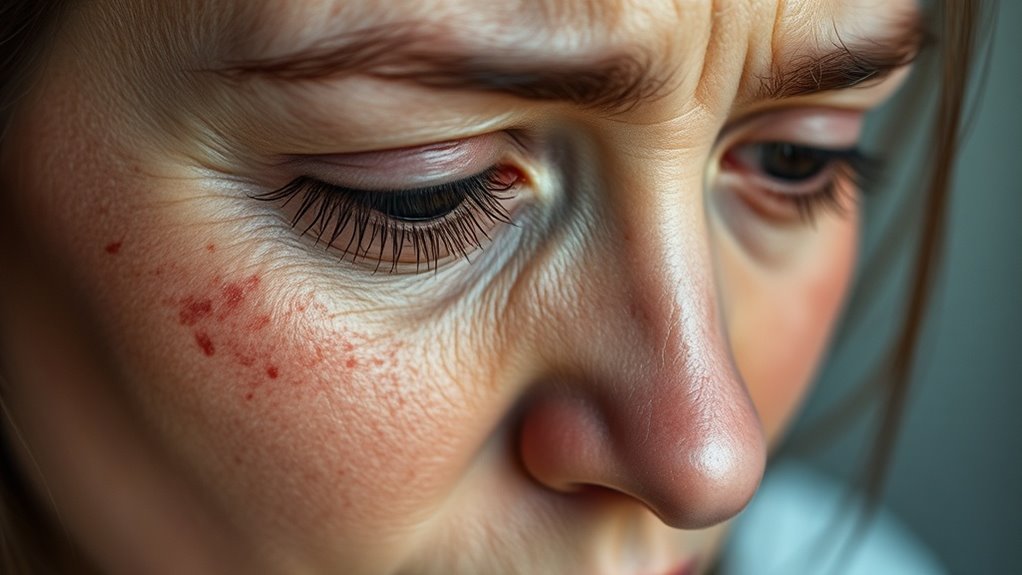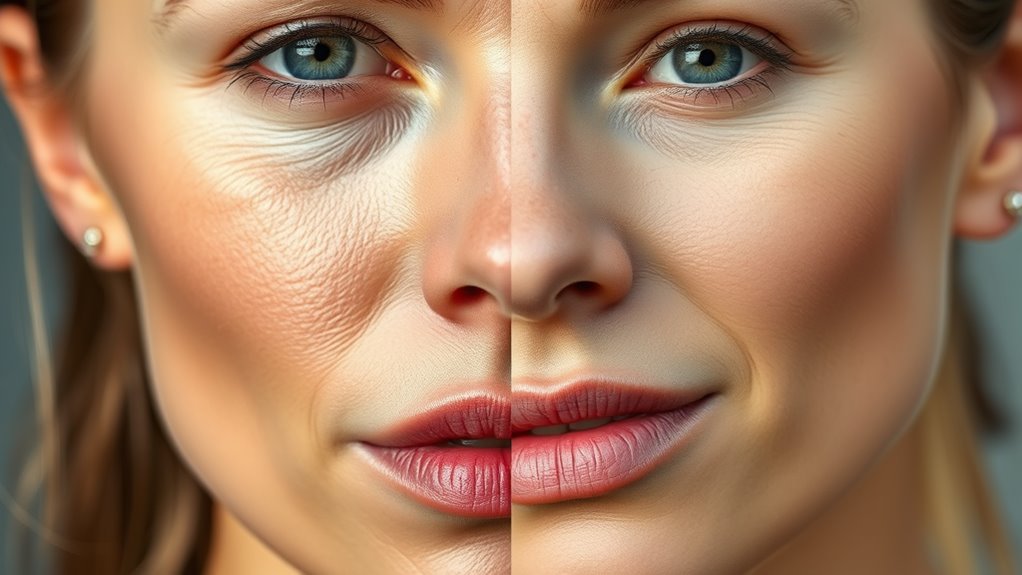Stressed. Your Skin Might Be Showing It-Here’s What to Do
Did you know that over 70% of individuals report experiencing skin problems when under stress? When your body faces anxiety, elevated cortisol levels can lead to breakouts, dryness, and irritation. These changes can be frustrating and alarming. So, what can you do to manage stress and its impact on your skin? Understanding the connection between stress and skin health is crucial to finding effective solutions.
Understanding the Connection Between Stress and Skin Health
When you experience stress, your body’s response can directly impact your skin health.
Stress triggers hormonal changes, increasing cortisol levels, which leads to heightened oil production. This excess oil can clog pores, resulting in breakouts.
Additionally, stress compromises your immune system, making your skin more vulnerable to bacteria. Understanding this connection is essential for managing stress-related skin issues effectively. Implementing effective tips for stress acne can help mitigate these effects and promote clearer skin during challenging times.
Common Skin Issues Related to Stress
Stress can manifest through various skin issues, often becoming more pronounced during demanding times.
You may notice conditions like acne, eczema, or psoriasis flare-ups. Additionally, heightened stress can lead to increased oil production and inflammation, exacerbating existing problems. Dryness, redness, and sensitivity can also occur as your body struggles to maintain balance. Recognizing these symptoms is crucial for effective treatment. Moreover, stress-induced breakouts are commonly associated with the body’s hormonal response to stress, making knowledge of stress management vital for skin health.
Effective Stress Management Techniques
Managing stress effectively is essential for maintaining skin health and overall well-being.
To achieve this, practice deep breathing techniques, engage in regular physical activity, and prioritize adequate sleep.
Mindfulness and meditation can also help regulate your stress response.
Additionally, maintaining strong social connections supports emotional resilience.
Implementing these strategies can significantly mitigate stress’s impact on your skin and overall health.
Skincare Rituals to Combat Stress-Induced Skin Problems
Effective stress management can significantly improve skin health, but skincare rituals also play a vital role in addressing stress-induced skin problems.
Incorporate a gentle cleansing routine to remove impurities and apply a hydrating serum to boost moisture levels. Utilize calming ingredients like chamomile or green tea in your products. Additionally, focus on using soothing ingredients to help reduce inflammation and redness in sensitive skin.
Lastly, exfoliate weekly to promote cell turnover, allowing your skin to recover and thrive.
Seeking Professional Help for Persistent Skin Concerns
When persistent skin concerns like redness, breakouts, or irritation don’t improve despite your best efforts, it’s time to consider seeking professional help.
Dermatologists can evaluate underlying issues, recommend tailored treatments, and guide you in managing stressors affecting your skin health.
They may suggest therapies such as prescription medications, chemical peels, or specialized skincare products, offering you a comprehensive plan for improvement. Additionally, they often recommend using gentle skincare routines to minimize irritation and promote healing for sensitive skin.





